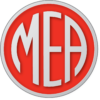Menu
SERVICE PLANS AND TRAINING
PREVENTIVE MAINTENANCE SERVICES
MEA INC offers a Preventive Maintenance Services for new and existing equipment that is fully customizable to meet the dynamic needs of clients. Within this plan, MEA INC assigns a Field Service Engineer that is responsible for:
- Product technical support
- Equipment health audits
- Alarm and event support
- Equipment maintenance recommendations
- Software maintenance
- Initial and continuous training
WHY IS PREVENTIVE MAINTENANCE IMPORTANT?
- Prevents unforeseen shutdowns
- Maximizes equipment operability
- Diagnose problems before happening
- Inspect inventory of MEA spare parts on-hand
- Helps with future Turnaround planning
- Increase revenue with less downtime
MEA FACTORY AND ONSITE TRAINING
We offer comprehensive training programs that can be done at an MEA INC facility, on installed equipment or on demonstration units which can be brought to your training facilities. Each session is conducted and moderated by an MEA INC Senior Field Service Engineer.
WHY IS TRAINING IMPORTANT?
- Training during and around turnarounds is difficult and some critical personnel may not be available.
- Personnel move around refineries more now than ever before.
- Performing proper maintenance in between turnarounds is critical to the health of the equipment.
- Allows the user to build confidence in using equipment in a offline environment
- Learning advanced troubleshooting techniques can eliminate/minimize downtime and/or a MEA service trip.
- Improve employee confidence while working on the system.
- Avoid injuries to employees
- Increase production with less down time
- Reduce risky behavior
- Everyone can use a refresher.
SAMPLE TRAINING ITINERARY
DAY 1 - OPERATION
- How actuator moves from control signal in operations
- How feedback signal is generated and sent back to operations
- What meters are reading and how to understand them
- How to properly operate hand valves for control
- How to engage and use hand wheel operation properly
- How to disengage hand wheel and return to control smoothly
- How to change filters properly and safely
DAY 2 - MAINTENANCE
- How to properly PM an actuator – mechanical.
- How to understand the hydraulic schematics.
- Point out location of parts on actuator & understand what these parts are accomplishing.
- How to safely change out parts while in operation.
- When to change filters and have oil analyzed.
- How to set up pump pressure.
- How to change pumps.
DAY 3 - INSTRUMENTATION
- How to properly PM your actuator – electronics
- How to understand if there is a problem electronically
- How to understand the transducer system for feedback
- How to understand the alarms and how they are generated
- How to safely change electrical components & PLC components while in operation
- How to calibrate all control systems
